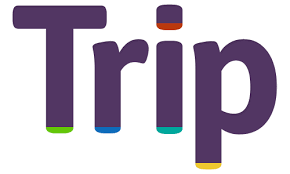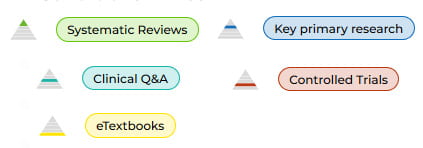
The Trip Database is a medical search engine with an emphasis on evidence based practice (EBP), clinical guidelines and queries. Himmelfarb Library provides access to the freely accessible version of Trip. Started in 1997, Trip aims to help users “find evidence fast” with an easy to use search interface that filters results based on the evidence pyramid. A pyramid icon is displayed with the resource that indicates where the resource falls on the evidence pyramid.

Journals covered in Trip include high impact titles such as the New England Journal of Medicine (NEJM), The Lancet, the Journal of the American Medical Association (JAMA), the British Medical Journal (BMJ), and Annals of Internal Medicine. In addition, content from EvidenceAlerts and PubMed’s core journal content is included. You can learn more about journal content included in Trip in their recent blog post on the subject.
In addition to the journal articles, Trip results provide a full range of resources including e-textbooks, patient information leaflets, educational courses and news. One thing to keep in mind about Trip is that publishers are classified by their output. Cochrane is known for publishing systematic reviews, and therefore Cochrane published resources will appear in the Systematic Reviews filter. The New England Journal of Medicine (NEJM) is classified as Primary Research. This means that if a systematic review is published in NEJM, it will appear in the Primary Research filter. However, when a systematic review is reviewed by the Database of Abstracts of Reviews of Effects (DARE), it will eventually appear in the Systematic Reviews filter, although there is a time delay.
Trip can be used by practicing physicians who would like to broaden their background knowledge on conditions such as diabetes or cancer, or who need to find relevant evidence-based information on testing guidelines or to make sure a “don’t miss” diagnosis is included in their differential diagnosis. Trip is also useful for medical students who may find the PICO search tool an effective way to search for applicable resources. Check out this blog post to learn more about case studies for using Trip.
Trip has responded to the War in Ukraine by creating a combat injuries filter. While this effort is still a work in progress, the filter attempts to gather the best combat evidence available.
Interested in learning more about Trip? Check out the short video below:


